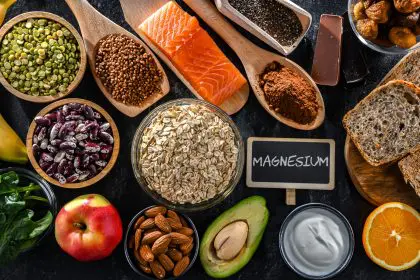The heart remains our most vital organ, working continuously to sustain life. While cardiovascular diseases lead global mortality rates, research shows that strategic dietary choices can significantly reduce heart disease risks. Understanding which foods benefit heart health enables better dietary decisions for long-term wellness.
Recent studies indicate that specific nutrients and food combinations can actively protect heart function, reduce inflammation, and support overall cardiovascular health. These benefits often come from readily available foods that can easily integrate into daily meals.
The power of omega-3s in fatty fish
Fatty fish stands as a premier source of heart-protective nutrients, particularly omega-3 fatty acids EPA and DHA. Salmon, mackerel, and sardines deliver these essential fats that can reduce inflammation and lower triglycerides by up to 30 percent. The American Heart Association recommends two weekly servings of fatty fish, each about 3.5 ounces, to maintain optimal heart health.
These omega-3s work to prevent arterial plaque formation while maintaining healthy blood flow. Regular consumption helps stabilize heart rhythms and reduce the risk of sudden cardiac events through their anti-inflammatory properties.
Nuts as natural heart protectors
Daily consumption of nuts provides significant cardiovascular benefits through their unique nutrient profile. Almonds, walnuts, and pistachios contain heart-healthy unsaturated fats, omega-3s, and magnesium. Research demonstrates that eating about one ounce of nuts daily can reduce harmful LDL cholesterol by up to 10 percent.
The effectiveness of nuts stems from their plant sterols, which naturally lower cholesterol by blocking its absorption. Their magnesium content helps prevent heart rhythm irregularities, while L-arginine improves arterial wall flexibility, reducing blood clot risks.
The vital role of leafy greens
Leafy green vegetables like spinach, kale, and Swiss chard provide essential nutrients that directly benefit heart health. These vegetables contain high levels of dietary nitrates, which improve blood flow by dilating blood vessels. This effect can reduce blood pressure by 4-10 millimeters of mercury.
Regular consumption of leafy greens correlates with a 16 percent lower risk of cardiovascular disease. Their combination of vitamins A, C, and K, along with folate, creates a powerful nutrient profile that supports overall heart function.
Whole grains for cholesterol management
Whole grains provide essential soluble fiber that actively manages cholesterol levels. Oats, quinoa, and brown rice help remove cholesterol from the body before it enters the bloodstream. Research indicates that consuming 5-10 grams of soluble fiber daily can reduce LDL cholesterol by 5-10 percent.
These grains also help regulate blood sugar levels, reducing strain on the heart and lowering type 2 diabetes risk. Studies link whole grain consumption to reduced systolic blood pressure by 2-4 millimeters of mercury.
Berries as antioxidant defenders
Berries provide powerful antioxidant protection through their anthocyanins, the compounds responsible for their vibrant colors. Blueberries, strawberries, raspberries, and blackberries fight oxidative stress, a major contributor to heart disease.
Clinical research published in the American Journal of Clinical Nutrition demonstrates that consuming one cup of berries daily can significantly improve blood pressure over eight weeks. These fruits enhance blood vessel function while reducing inflammation that can damage arterial walls.
Maximizing heart-health benefits
Combining these foods creates synergistic effects that amplify their individual benefits. A salad combining spinach, walnuts, and berries, dressed with olive oil, provides multiple heart-protective compounds in a single meal.
Proper hydration supports these dietary choices by maintaining healthy blood flow and reducing heart strain. Meanwhile, minimizing processed food intake, particularly those high in sodium and sugar, helps preserve the benefits of heart-healthy foods.
Conclusion
Protecting heart health through diet offers a practical approach to reducing cardiovascular disease risk. The combination of fatty fish, nuts, leafy greens, whole grains, and berries provides a comprehensive nutritional strategy for supporting heart function.
These dietary choices, when implemented consistently, create a foundation for long-term cardiovascular health. Small, sustainable changes in eating habits can lead to significant improvements in heart health, making it possible for everyone to take meaningful steps toward better cardiovascular wellness.
This story was created using AI technology.















